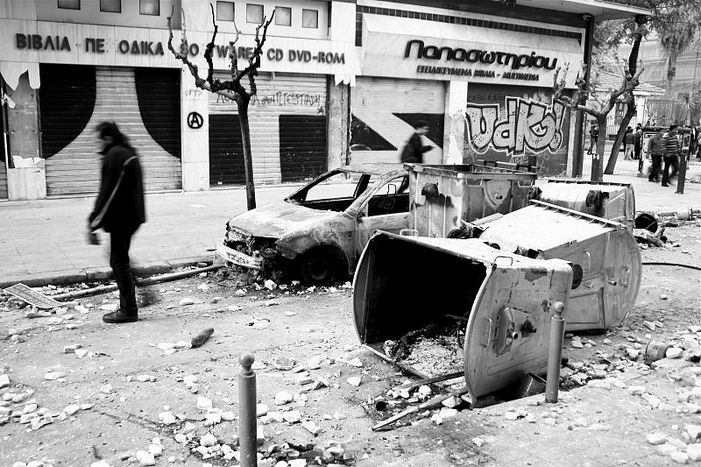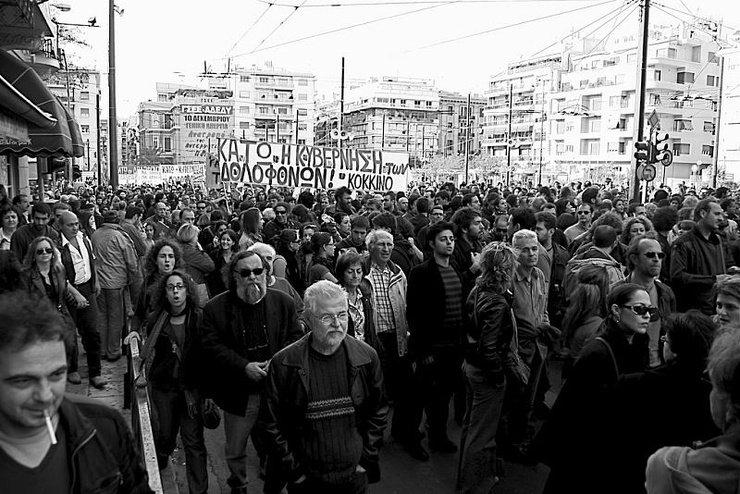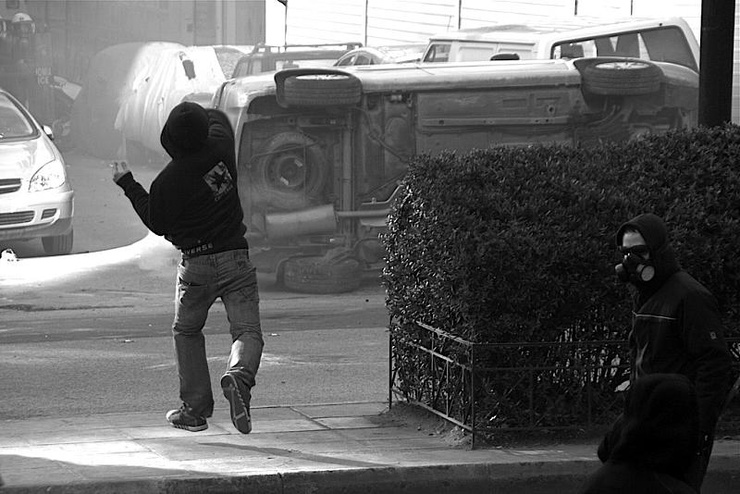
Greece youth: violence in the name of education
Published on
9 December. As the funeral takes place of a young boy, whose death led to days of continuous rioting in Greek cities three days earlier, a look at where the rebellion is coming from. Voice from Athens
The centre of Athens looks like a conflict zone. It's probably the worst since the restoration of democracy in 1974. Dozens of shops, banks, businesses and cars are being destroyed. The whole city is at the mercy of anarchists. Why have they behaved this way for so many years? Why do young people have to join them to express themselves? The answer is rooted in current social agitations.
The facts: starting with one Saturday night
6 December: An officer on patrol, 37, shoots dead Alexis Grigoropoulos, 15, in the Exarchia neighbourhood. The area has often seen clashes between self-styled anarchists, nicknamed the ‘known-unknowns’, and police. The circumstances surrounding the teenager’s death are still unclear. One of the two patrol officers claims that his vehicle was attacked by a thirty-strong group of people. He fires his service gun three times in self-defence, twice in the air and once on the ground. His version is contradicted by several witnesses; they claim that there was just a verbal exchange between the two officers and a small group of youngsters, who are arrested immediately after the incident
7 December: Many mostly young people protest outside the general police department of Athens in memory of the victim. Clashes worsen
8 December: Things spiral out of control during a march and gathering of the Greek communist party for Alexis

9 December: The funeral is held in a southern residential suburb on the coast, Paleo Faliro. Schools close
Greek youths in Europe’s limelight
The death of the young boy may just be an excuse for the overqualified, so-called ‘700-euro-generation’, to rage at society. They have a hopeless future, since their degrees do not correspond to the needs of the market. Student tension arises from the education reform. The main axe of this is the recognition of graduate professional rights and the franchises of foreign universities in Greece.
Student tension arises from the education reform
In the European Union and in a free market all this is taken for granted. But not in Greece, where there is a state monopoly concerning higher education for university professors, tutorial centres and so on. Greece has experienced frequent and sometimes violent demonstrations recently in the name of education. All that anger which finally turns to rage is easily taken advantage (or used) by the political parties and professional unions.

What a pity it is to see the energy of youngsters lost just because society doesn’t take care of their culture and education, doesn’t encourage them to explore their dreams and at the same time introduce and prepare them for real life.



